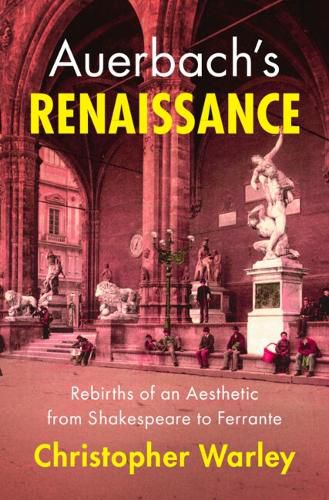Readings Newsletter
Become a Readings Member to make your shopping experience even easier.
Sign in or sign up for free!
You’re not far away from qualifying for FREE standard shipping within Australia
You’ve qualified for FREE standard shipping within Australia
The cart is loading…






Erich Auerbach's Mimesis is among the most admired works of literary criticism of the last hundred years. Amidst the horrors of the Second World War, Auerbach's prodigious learning managed - almost miraculously - to give voice to a delicate, subtle optimism. Focusing on Auerbach's account of Renaissance literature, Christopher Warley rediscovers the powerful beauty of Mimesis and shows its vitality for contemporary literary criticism. Analysing Auerbach's account of Renaissance love lyric alongside Woolf's To the Lighthouse, fifteenth-century Burgundian writing alongside Ferrante, and Shakespeare alongside Michelet, Ruskin and Burckhardt, Auerbach's Renaissance traces an aesthetic that celebrates the diversity of human life. Simultaneously it locates in Auerbach's reading of Renaissance writing a challenge to the pessimism of today, the sense that we live in an endless present where the future looms only as a threat. Auerbach's scholarship, the art he learns from Dante, Rabelais, Montaigne, and Shakespeare, is a Renaissance offering democratic possibility.
$9.00 standard shipping within Australia
FREE standard shipping within Australia for orders over $100.00
Express & International shipping calculated at checkout
Erich Auerbach's Mimesis is among the most admired works of literary criticism of the last hundred years. Amidst the horrors of the Second World War, Auerbach's prodigious learning managed - almost miraculously - to give voice to a delicate, subtle optimism. Focusing on Auerbach's account of Renaissance literature, Christopher Warley rediscovers the powerful beauty of Mimesis and shows its vitality for contemporary literary criticism. Analysing Auerbach's account of Renaissance love lyric alongside Woolf's To the Lighthouse, fifteenth-century Burgundian writing alongside Ferrante, and Shakespeare alongside Michelet, Ruskin and Burckhardt, Auerbach's Renaissance traces an aesthetic that celebrates the diversity of human life. Simultaneously it locates in Auerbach's reading of Renaissance writing a challenge to the pessimism of today, the sense that we live in an endless present where the future looms only as a threat. Auerbach's scholarship, the art he learns from Dante, Rabelais, Montaigne, and Shakespeare, is a Renaissance offering democratic possibility.